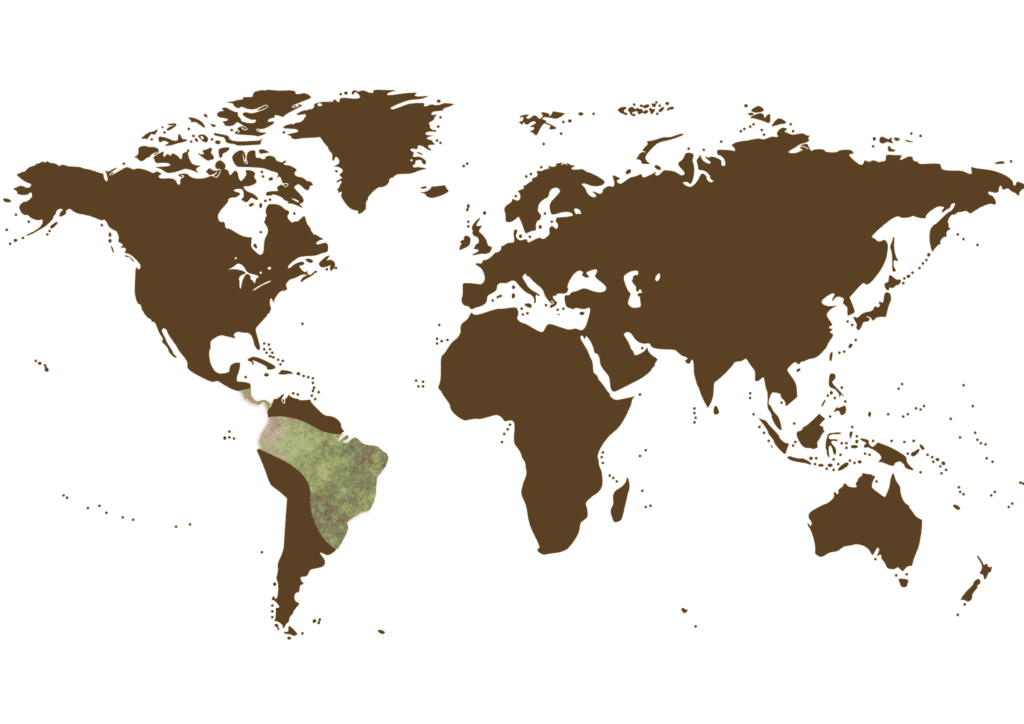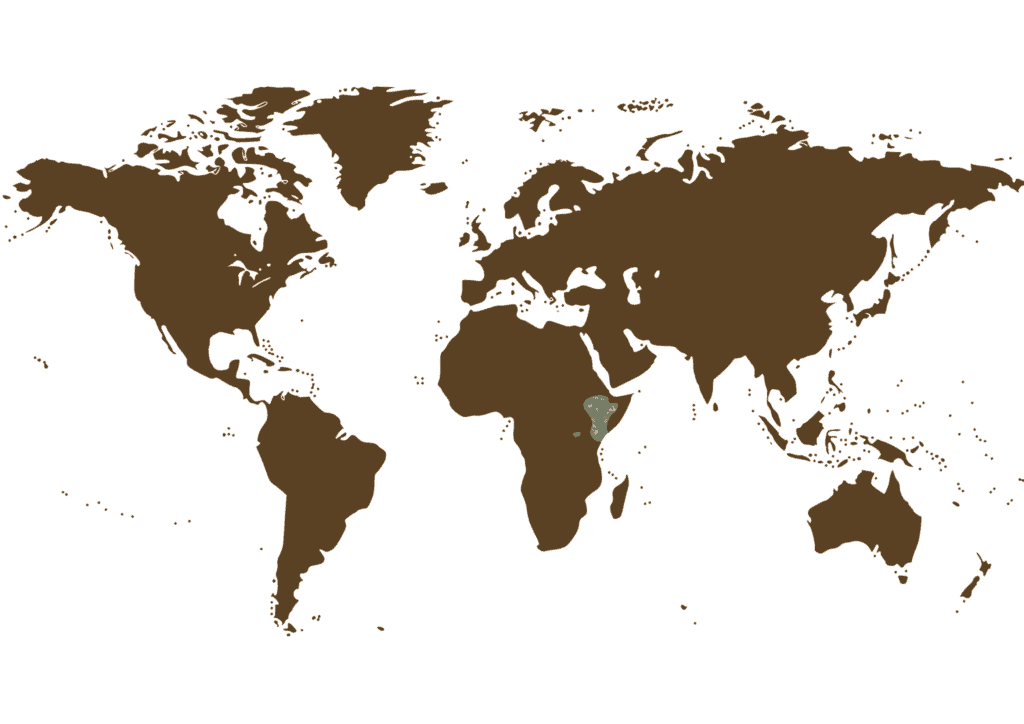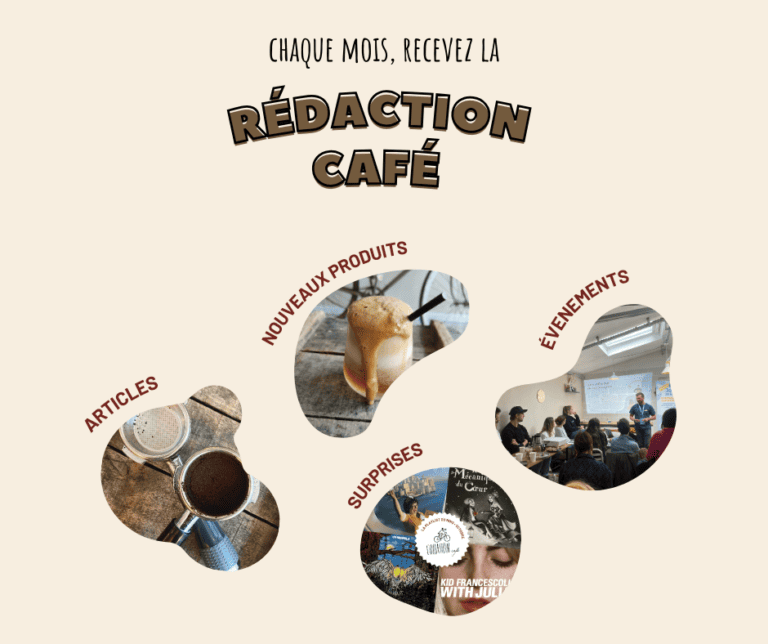Which coffee for which continent ?
As you may (or may not) know, there are different species of coffee, which prefer different climates and soils. Just like a fruit or vegetable…
If you’ve read our article on gesha coffee, one of the world’s most highly prized species, you’ll have read that it requires very specific climatic characteristics. In the coffee family, of course, there are those that can be enjoyed just about anywhere, and others that are more difficult to grow. ☕️
But did you know that beyond cultivation, the same species of coffee will taste different depending on the soil in which it grows (yes, coffee is a little harder to grow than tomatoes or lemons 😂).
It may come as a surprise, but in this article, we’re going to tell you what your coffee will taste like depending on the soil it grows on, and therefore the continent it belongs to. 😌
PS: This is not an exact science, in particular the taste of the coffee will depend a lot on how it is processed after harvesting. But then again, certain countries will have their own habits and therefore their own way of processing coffee and therefore developing different flavors! 🌎🌍🌏
Latin American coffee ☕️
Many coffee farms can be found in Brazil, Colombia and Panama.
The species grown there will have notably fruity flavors, we’ll simply recognize the fruits that grow on the territory of America: yellow fruits or exotic fruits. 🥭 In addition, the flavors will be turned towards honey and chocolate, with cups that are quite gourmand 😋.

Brazilian coffee 🇧🇷
Coffee cultivation in Brazil has been established since the 18ᵉ century, and today the country represents a pillar of the global coffee market. The deep flavors and full-bodied aroma of Brazilian coffee make it one of the world’s most popular varieties. It’s renowned for its nutty, cashew or almond flavors, but also for its chocolate and caramel notes. It’s a fairly simple coffee, but very gourmet! 😋
If you like less bitter coffees, chances are you’ll find something to your liking among the Brazilian varieties ✨
Panama coffee 🇵🇦
We’ve already talked about one of Panama’s coffee varieties: Geisha. Our readers already know that the coffee grown on Panama’s soils is found in very special conditions, as Panama has mostly volcanic soils!
In fact, the Geisha variety is the most widely produced in the country, as it is one of the most expensive varieties in the world… This one will have rather flowery, delicate and complex flavors in a cup. ✨
Colombian coffee 🇨🇴
As for Colombia, the country is blessed with a very broad spectrum of aromatic palettes (and is reputed to be the best in the world 🫢). Its taste is quite similar to Brazilian coffee, although with a greater wealth of flavors. You’ll find chocolate, honey or walnut, but also fruity flavors like cherry.
Colombian coffee is balanced, round on the palate and extremely tasty! ✨
African coffee ☕️
When we talk about coffee production in Africa, we’re going to focus on coffees from Ethiopia, Kenya and Rwanda (yes, even this tiny country capitalizes on coffee exports)! Because even if almost every country has its own coffee farm, the best will come from these three East African countries.
Like their climate and rather dry soils, African coffees can have slightly earthy notes. But also, because of the richness of the products that grow throughout the territory, you’ll find slightly spicy coffees with a majority of floral and fruity flavors.

Ethiopian coffee 🇪🇹
Ethiopia is considered the cradle of coffee, producing a multitude of varieties with a wide range of aromas. However, most of them have floral notes, including hibiscus, which is typical of African coffees. If you’d like to test your taste buds and sample Ethiopian coffees, we challenge you to find the notes of lemon, red fruit and jasmine that are often present.
Kenyan coffee 🇰🇪
Kenya is the second-largest coffee-producing country in Africa after Ethiopia. In fact, the taste of Kenyan coffee is quite unique, as the country is distinguished by the dry soils of the savannah and the cold, snowy mountains on the other side.
The richness of the soils contributes to the production of a coffee with a remarkable range of aromas and a unique sweetness. If you get the chance to taste them, you may recognize fruity and tangy flavors.😋
As an anecdote, it’s well known in the coffee world that varieties from Kenya will taste… like tomatoes 🍅. Without being able to really explain it, it’s the taste that will stand out most often. If one day you find that a coffee tastes like tomatoes, you can be sure you know its origin!
Indeed, Kenyan coffee is very rich and is often compared to Burgundy wine thanks to its intense aromas!
A Kenyan barista once said, “Coffee is like wine: you can tell from the cup where it was grown”.
Coffee from Rwanda 🇷🇼
In Rwanda, you’ll also find many varieties that are rather sweet, with notes of citrus or even apple! As in Kenya (which borders on this small country), there are black and red fruit aromas, such as berries.
On average, coffees from Rwanda are mild and well-balanced.
Asian coffee ☕️
In Asia, coffee is found mainly in Vietnam, Indonesia, India, Laos and China. Asia produces a lot of coffee, but mostly robusta and little specialty coffee.
Robusta is a coffee with few aromatic possibilities. It’s a more robust (as its name suggests) and full-bodied coffee. Most specialty coffees are what we call “blends”, i.e. mixtures of Robusta and Arabica coffees, which allow us to play with the aromas and often soften the Robusta, whereas Arabica brings great aromatic finesse to the palate.
Indonesian coffees are particularly noteworthy for their spicy aroma, with ginger for example.😋

We hope we’ve taught you a few things about specialty coffee, and the specifics of where it’s produced and processed.
At L’Occasion Café, you’ll be able to taste coffee from Africa, Latin America or Asia quite easily, depending on what’s arriving at the moment! We’ll be happy to share our knowledge to show you in more detail what a cup of coffee can feel like. ❤️
It’s still not an exact science, and there’s no concrete explanation as to why hibiscus is found in an African coffee and not a Brazilian one, but it’s still interesting to test our taste buds by trying to guess the aromatic palette of one variety or another. 😄
See you soon at Occasion Café! ✅
Our blog articles

3 ways to give your coffee a twist
If you put a lump of sugar in your coffee, stop! There are other ways to sweeten and twist the

Golden Latte : a 5,000-year-old drink…
Golden latte has many virtues, not least its anti-inflammatory properties. We tell you more about it here, and what makes

Chai tea: its origins, its benefits…
Many of you are fans of chai tea. Spicy and comforting, this tea has a unique history and many benefits

